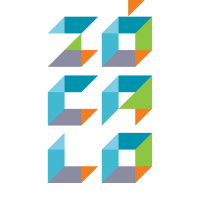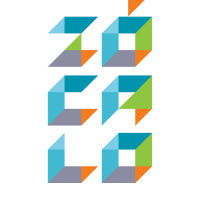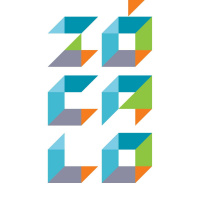Synopsis
An innovative blend of ideas journalism and live events.
Episodes
-
What Can Everyday Angelenos Do About Homelessness?
22/10/2019 Duration: 01h06minLos Angeles leaders have developed billion-dollar plans to boost services and build housing for the homeless. But such plans are now stuck in political quicksand, with neighborhood activists blocking shelters and new housing. Meanwhile, living in a city with a homelessness emergency is an everyday struggle, and there is no guidebook to dealing with sidewalk squalor or witnessing human suffering on your street. What’s the best way for Angelenos to engage with our homeless neighbors? What can we contribute to make a real difference in their lives? And who, if anyone, should we call when we perceive a threat, or see someone in crisis? UCLA sociologist Randall Kuhn, Social Venture Partners Los Angeles executive director Christine Margiotta, executive director of the California Policy Lab at UCLA Janey Rountree, and Chris Ko, Managing Director of Homelessness and Strategic Initiatives at United Way of Greater Los Angeles, visited Zócalo to discuss how everyday Angelenos can best respond to the challenges of homele
-
Does Hawai‘i Welcome Immigrants?
17/10/2019 Duration: 01h02minThe history of modern Hawai‘i has been defined by immigration, from the Chinese, Japanese, Portuguese, and Puerto Ricans imported to work on 19th-century plantations, to the Filipino, Korean, and Micronesian migrants who make possible today’s growing tourism and hospitality industry. Arrivals from around the world have shaped and reshaped the islands’ economy and culture, and made Hawai‘i a global crossroads. But some arrivals have faced ostracism and discrimination. To what extent does contemporary Hawai‘i embrace its immigrant past and present? Have Hawai‘i residents generally been welcoming to newcomers? And what part will immigration play as the state struggles with inequality in a changing world? Former Hawai‘i attorney general Doug Chin, Yale University historian Gary Okihiro, former Pacific Gateway Center deputy director Terrina Wong, and immigration attorney Clare Hanusz visited Zócalo to discuss the role that immigration has played in the past, present, and future of Hawai‘i. Moderated by Hawai‘i Pub
-
How Are Immigrants Changing the Way Health Care Is Practiced?
07/10/2019 Duration: 57minNo sector in the state of California relies more on immigrants than health care. One-quarter of the health workforce—from nurses to pharmacists to home health aides—and nearly one-third of all doctors and surgeons‚ are foreign-born. And, according to some studies, patients of foreign-trained health providers actually do better than patients who rely on native-born Americans. How have immigrants working in health care changed the standards and culture of our hospitals and clinics? Do cardiologists from India handle patients with high blood pressure in different ways? Might a geriatric specialist trained in Latin America approach end-of-life issues with a distinct perspective? And how have immigrant providers shaped the poor and rural California communities where they are more likely to practice? Former director of the Central California Center for Excellence in Nursing Pilar De La Cruz Samoulian, and Michelle Bholat, co-founder and executive director of the UCLA International Medical Graduate Program, visited
-
Is Politics Really Tearing America Apart?
01/10/2019 Duration: 55minIs Politics Really Tearing America Apart?
-
Is Journalism About Social Justice?
25/09/2019 Duration: 01h02minIs Journalism About Social Justice?
-
Is Depression a 21st-Century Epidemic?
11/09/2019 Duration: 55minMore than 17 million adults in America—7 percent of people 18 and older in the U.S.—have at least one major depressive episode annually. An estimated 15 percent of all people on Earth are expected to experience depression during their lifetimes. In 2015, UCLA launched a campus-wide initiative to cut the global burden of depression in half by 2050. Are we suffering more from depression than we used to? What is the balance between genetics and life experience in determining who suffers from this disease? How have the excesses, technologies, and even toxins of 21st-century life contributed to this epidemic? And what 21st-century tools might end it? UCLA Center for Neurobehavioral Genetics director and psychiatrist Nelson Freimer, Deputy Director of the National Institute of Mental Health Shelli Avenevoli, and psychologist and director of UCLA’s Anxiety and Depression Research Center Michelle Craske visited Zócalo to discuss modernity’s role in the global epidemic of depression. Moderated by Amy Ellis Nutt, forme
-
-
Are Americans Turning Against Science?
18/07/2019 Duration: 01h43sScientists have demonstrated that climate change is real, but polls show that 30 percent of Americans disagree. Scientists have shown that genetically modified foods pose no threat, but, according to one survey, half the country sees such foods as dangerous. And despite scientific assurances about vaccine safety, the number of very young children who don’t get vaccinated has quadrupled in the past two decades. Why are so many Americans ignoring—or rejecting—broad scientific consensus on these and other questions? Can skepticism about scientists be blamed entirely on the internet, the media, or ideological polarization among both conservatives and liberals—or do scientific institutions themselves bear some responsibility? And what are the broader consequences of this decline in belief in science as our society becomes ever more dependent on technology and discovery? Caltech historian of science and co-author of Merchants of Doubt Erik Conway, UCLA sociologist Jeffrey Guhin, and Cary Funk, director of science a
-
What Will California’s Coastline Look Like in 2100?
09/07/2019 Duration: 01h01minIf state projections prove right, the sea level along California’s coast will rise 55 inches by the end of this century. That increase, which will be even higher during tidal floods and Pacific storms, would threaten the economies of the coastal counties that 85 percent of Californians call home. And it could spell doom for water sources, major roadways, hazardous waste facilities, military installations, power plants, airports, and seaports. How will this sea level rise change coastal communities, coastal industries from fish to oil, and postcard settings from Big Sur to San Diego? What can be done to mitigate the effects of rising seas and save California treasures? Or will California have to abandon many of its coastal and low-lying areas? Atmospheric physicist and director of the UCLA Center for Climate Science Alex Hall, California Coastal Commission member Effie Turnbull Sanders, and Sean B. Hecht, co-executive director of the Emmett Institute on Climate Change and the Environment at UCLA Law School, vi
-
Is Civilization on the Verge of Collapse?
19/06/2019 Duration: 46minTwenty-first century visions of the future now seem drawn from Hollywood horror films. Runaway climate change portends the wholesale destruction of economies and species. Scientists fear new mass epidemics. Old technologies are breaking down and new technologies are used for oppression and social control. The deluge of digital information makes it hard to separate truth from fiction. What are the risks of human society of entering a darker, less civilized age? Do the rise of authoritarians and political extremists portend greater barbarity in how our societies are governed? Even if we all agreed that we’re close to the apocalypse, do humans have the capacity to save themselves? University of New South Wales global biosecurity scholar Raina MacIntyre, SCI-Arc speculative architect and futurist Liam Young, and RAND Corporation defense policy researcher and former U.S. Marine Jonathan P. Wong visited Zócalo to examine whether the future will take us backwards. Moderated by Edan Lepucki, novelist and author of Ca
-
Is Propaganda Keeping Americans From Thinking for Themselves?
06/06/2019 Duration: 01h01minIs Propaganda Keeping Americans From Thinking for Themselves?
-
What Can the Ancient World Teach Us About Feminism?
04/06/2019 Duration: 01h01minWe tend to think of women’s liberation as starting in the 19th century and of feminism as originating in the 20th century. But women throughout the ages have found ways to advance themselves and protect their rights even under the most oppressive circumstances. How did women in ancient societies, from Greece to China to the Yucatán Peninsula, carve out roles for themselves, resist misogyny, and defend themselves against discrimination? Which societies, if any, were open to the participation or even the leadership of women in matters of ritual and law, and which societies were the most exclusionary? And what thinkers and leaders from the ancient world proved to be ahead of their time when it came to women’s rights? UC Santa Barbara classicist and scholar of ancient Greek literature Helen Morales, University of Miami archaeologist and editor of Ancient Maya Women Traci Ardren, and Cal State LA historian of premodern China Ping Yao visited Zócalo to consider how ancient women empowered themselves long before con
-
Will Pidgin Survive the 21st Century?
21/05/2019 Duration: 01h01minEh braddah, howzit? Did you hear that a pidgin word—hammajang—made the Oxford English Dictionary? Wait, you missed it? No worry, beef curry. Pidgin remains one of the strongest and most distinctive elements of culture in Hawai‘i, used in everyday conversation and local advertising. What does the popularity of pidgin say about the history, culture, and class structure of Hawai‘i? How has contemporary immigration changed the ways in which it’s used? And what explains its persistence in a nation and a world where so many other local dialects have died? Former Hawai‘i Governor John D. Waiheʻe III, co-director of the University of Hawai'i Sato Center for Pidgin, Creole, and Dialect Studies Katie Drager, comedian Andy Bumatai, and California-based sociolinguist and scholar of American pidgins Sarah Roberts visited Zócalo to examine pidgin’s past and present—and how long it will survive. Moderated by Noe Tanigawa, arts & culture reporter for Hawai‘i Public Radio, this Zócalo/Daniel K. Inouye Institute "Talk Story" E
-
Will California Pick the Next President?
15/05/2019 Duration: 01h01minWhen it comes to picking the country’s presidents, the richest and most populous state hasn’t much mattered. Because their primaries are held earlier and they are swing states in the general election, smaller and colder places—like New Hampshire, Iowa, and Ohio—have an outsized influence on who occupies the White House. But could 2020 be different? California has moved its presidential primary to an earlier spot on the calendar, and American politics is changing in ways that make California’s technology, celebrity, and money even more important. Could that help California candidates or even fuel a Republican challenger to Trump? And if California does have a central role in the 2020 presidential drama, how might the Golden State shape the agenda of the next president? Dean of the UCLA Luskin School of Public Affairs Gary Segura, vice president of the American Association of Political Consultants Rose Kapolczynski, and Latino Decisions co-founder and UCLA political scientist Matt Barreto visited Zócalo to disc
-
How Did the American Conquest of the Southwest Shape New Mexico’s Future?
14/05/2019 Duration: 01h02minHow Did the American Conquest of the Southwest Shape New Mexico’s Future? by Zócalo Public Square
-
How Does Community Conflict Turn Into Genocide?
02/05/2019 Duration: 01h07minHistory often blames genocide solely on murderous demagogues and military campaigns. But more often than not, the forces that unleash ethnic cleansing arise slowly and during peacetime, and stem from seemingly everyday interactions in places that are home to diverse peoples. What sorts of exchanges and social conditions unleash genocidal behavior? How do people who long lived together as neighbors come to turn on—and kill—each other? And can we teach ourselves to spot the early steps towards genocide so that we might prevent it in other countries or even our own? Brown University Distinguished Professor of European History Omer Bartov, winner of the ninth annual Zócalo Book Prize for Anatomy of a Genocide: The Life and Death of a Town Called Buczacz, visited Zócalo to share lessons from his mother’s hometown about how easily communities can slide into mass killing. The event took place at the National Center for the Preservation of Democracy in downtown Los Angeles
-
Is America Ready for the Next Recession?
11/04/2019 Duration: 01h02min“Economists have predicted nine out of the last five recessions,” Nobel-winning economist Paul Samuelson famously joked. But recessions do eventually arrive, and when the next one hits, the United States may not be well-positioned to fight back. Instead of building up surpluses that could stimulate the economy in a downturn, the federal government has cut taxes and run up trillion-dollar annual deficits and a $21 trillion national debt. The Federal Reserve is still unwinding the actions it took to battle the Great Recession. And most Americans are unprepared for bad times, with only half saying they could come up with $400 in an emergency. How would Americans, their companies, and their many levels of government respond to a new economic downturn? Are U.S. social safety net programs up to the challenges of another recession? Could Americans overcome widening inequality and bitter political stalemates to take decisive action if the economy goes south again? UCLA Anderson Forecast director Jerry Nickelsburg, UC
-
Did Truth Ever Matter?
13/03/2019 Duration: 01h02minToday, Americans wring their hands about the systematic lying in politics, and media claim to be fighting to uphold the principles of truth and the existence of verifiable facts against unprecedented challenges. But the very idea that 'fake news' is a new problem is itself 'fake news.' Way back in 1710, Gulliver’s Travels author Jonathan Swift wrote, “Falsehood flies, and the truth comes limping after it.” And lies, slander, and libel were central features of politics, public discourse, and other human enterprises long before Swift. How did previous generations deal with the prevalence and power of falsehoods? How has art, by embodying a different kind of truth, served as both a party to and a shield against lies? And does misinformation pose a bigger problem now because of the speed at which it can spread digitally? New York Times film critic A.O. Scott, Boston University philosopher and author of Post-Truth Lee McIntyre, and Jennifer Kavanagh, RAND Corporation political scientist and co-author of Truth Deca
-
Are American Presidents Above the Law?
06/03/2019 Duration: 01h01minThe Mueller Report promises to clarify what happened in the 2016 election and its aftermath. But that document may only add to the confusion over a broader question: What does it take to fire an American president? In recent months, critics of Donald Trump have discussed removing the president by impeachment, indictment, and the 25th Amendment. But no president has ever been impeached and convicted by the Senate, and the Department of Justice may preclude a president from being indicted. If impeachment is impossible, what methods exist, legally, for removing a president? Why do we have special prosecutors if they can’t prosecute? Is the American president, for all practical purposes, above the law? UCLA constitutional law scholar Jon D. Michaels, Wake Forest political scientist and author of The Special Prosecutor in American Politics, Katy Harriger, and Joel D. Aberbach, political scientist and former director of the UCLA Center for American Politics and Public Policy, visited Zócalo to examine the historica
-
Is the Digital Age Making Museums Obsolete?
28/02/2019 Duration: 01h06minBefore the digital age, museums were places where people went to acquire knowledge. But now most of the information and images contained in museums are available on your smartphone. So how can museums stave off obsolescence? Can populist shows and attention-getting architecture keep museums relevant and pull today’s audiences away from their devices? Are some museums succeeding in redefining their purpose as providing “experiences” and at least the semblance of authenticity, like touching mastodon bones or reading directly from the pages of Lincoln’s diary or Gutenberg’s Bible? And what happens when museums try to use social media and other technology to connect visitors to exhibits—and to each other? Natural History Museum of Los Angeles County president and director Lori Bettison-Varga, Smithsonian Asian Pacific American Center director Lisa Sasaki, and Nicole Ivy, George Washington University public historian and former director of inclusion for the American Alliance of Museums, visited Zócalo to discuss t









